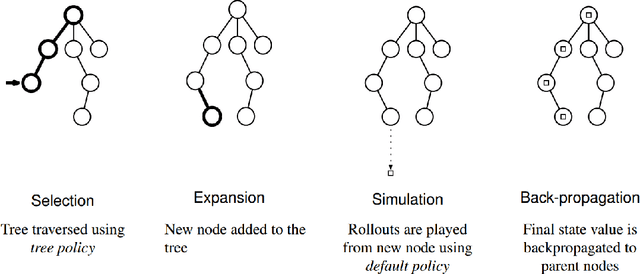Chris Amato
The Art of Drafting: A Team-Oriented Hero Recommendation System for Multiplayer Online Battle Arena Games
Jun 26, 2018



Abstract:Multiplayer Online Battle Arena (MOBA) games have received increasing popularity recently. In a match of such games, players compete in two teams of five, each controlling an in-game avatars, known as heroes, selected from a roster of more than 100. The selection of heroes, also known as pick or draft, takes place before the match starts and alternates between the two teams until each player has selected one hero. Heroes are designed with different strengths and weaknesses to promote team cooperation in a game. Intuitively, heroes in a strong team should complement each other's strengths and suppressing those of opponents. Hero drafting is therefore a challenging problem due to the complex hero-to-hero relationships to consider. In this paper, we propose a novel hero recommendation system that suggests heroes to add to an existing team while maximizing the team's prospect for victory. To that end, we model the drafting between two teams as a combinatorial game and use Monte Carlo Tree Search (MCTS) for estimating the values of hero combinations. Our empirical evaluation shows that hero teams drafted by our recommendation algorithm have significantly higher win rate against teams constructed by other baseline and state-of-the-art strategies.
Q-DeckRec: A Fast Deck Recommendation System for Collectible Card Games
Jun 26, 2018


Abstract:Deck building is a crucial component in playing Collectible Card Games (CCGs). The goal of deck building is to choose a fixed-sized subset of cards from a large card pool, so that they work well together in-game against specific opponents. Existing methods either lack flexibility to adapt to different opponents or require large computational resources, still making them unsuitable for any real-time or large-scale application. We propose a new deck recommendation system, named Q-DeckRec, which learns a deck search policy during a training phase and uses it to solve deck building problem instances. Our experimental results demonstrate Q-DeckRec requires less computational resources to build winning-effective decks after a training phase compared to several baseline methods.
 Add to Chrome
Add to Chrome Add to Firefox
Add to Firefox Add to Edge
Add to Edge